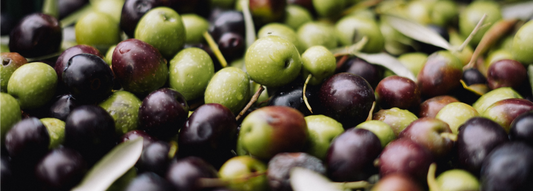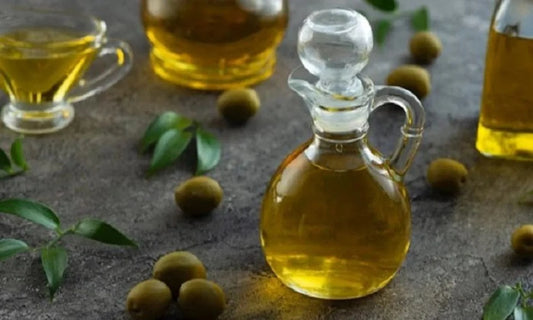Extra Virgin Olive Oil is regarded as the highest grade olive oil processed from the pressing of good quality olives.
For an olive oil to be labelled “Extra Virgin” the International Olive Council (IOC) states it must meet certain chemical criteria and pass tasting benchmarks determined by a sensory panel trained to IOC standards.
Olive oil is the healthiest oil being RICH in monounsaturated fats and contain a wide variety of antioxidants. In addition, Extra Virgin Olive Oil is the main source of fat in the Mediterranean style diet which evidence suggests is good for weight control and heart health.
So what is the Mediterranean Diet?
It is a diet type followed traditionally in Mediterranean countries that is especially high in the consumption of vegetables, legumes and olive oil and includes a modest consumption of proteins such as seafood, dairy and eggs and even less amounts of red meat.
The model of ‘Good Health’ is based upon the Mediterranean diet which originated from the Greek Island of Crete and Southern Italy around the 1960’s when a longitudinal study involving a 30 year mortality follow up began.
The Greek diet of the 1960’s was high in monounsaturated fats and in plant foods but low in animal and saturated fats, such as meat and butter. The major source of monounsaturated fat being “Extra Virgin Olive Oil” (4 tablespoons equivalent) was always consumed with vegetables, legumes and in casseroles and soups. In addition, the Greeks consumed high amounts of Omega 3’s, as known as linolenic acid, due to large amounts of nuts especially walnuts, wild greens and legumes.
So how is Olive Oil good for you?
First we will look at the nutrient composition of Extra Virgin Olive Oil:
- Monounsaturated fat: 73%
- Saturated fat: 13.8%
- Omega 6: 9.7%
- Omega 3: 0.76%
- Vitamin E: 72%
- Vitamin K: 75%
Extra Virgin Olive Oil is
1. Rich in antioxidants and contains anti-inflammatory properties.
- Research suggests “Extra Virgin Olive Oil” is rich in oleic acid (the main fatty acid in olive oil) which can reduce inflammatory markers like C - reactive protein. However, the main inflammatory effects seem to be controlled by the rich antioxidants in olive oil, primarily oleocanthal, and are said to have properties like ibuprophen which offer some pain relief.
2. Protective against heart disease and stroke by:
- Lowering LDL cholesterol (bad cholesterol).
- Improving endothelial function (lining of blood vessels)
- Lowering blood pressure.
- Preventing blood clots (key characteristic to heart attack and stroke).
- Reducing inflammation (key driver of heart disease).
3. Have favourable effects on brain function.
- Reduces the risk of cognitive impairment.
How do you cook with Extra Virgin Olive Oil?
Olive oil being rich in monounsaturated fatty acids is fairly resistant to high heat and does not oxidize (become damaged) like polyunsaturated fats can.
1. This means that you can use Extra Virgin Olive Oil in pan frying on the stove top: Heat-120 degrees Celsius.
2. Deep Frying (Yes, research has proven that Extra Virgin Olive oil is safe to deep fry) up to Heat- 160-180 degrees Celsius.
3. Oven baking Heat- below 200 degrees Celsius.
How to include Extra Virgin Olive Oil to your diet.
You can simply add 'Extra Virgin Olive Oil' to salads, stir-fries, roasted and steamed vegetables, chicken breast, soups, curries, spaghetti, pasta sauces, eggs (poached, omelettes, scrambled), fresh tomatoes, bread, fritters, salad dressings, casseroles, fried rice and more.
Look out for my recipe on:




